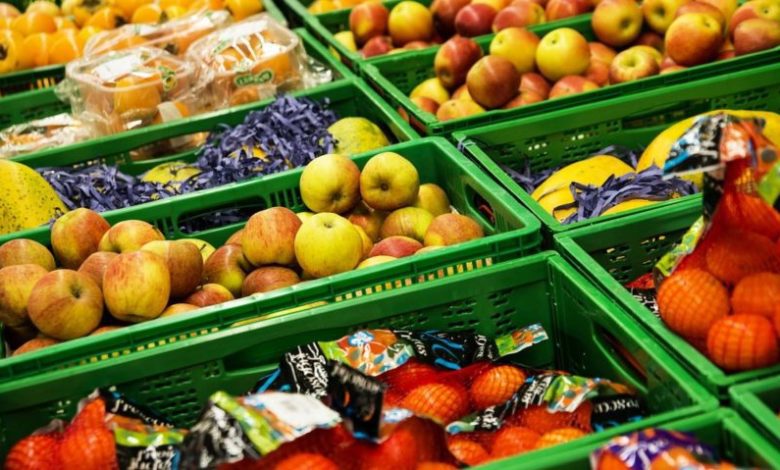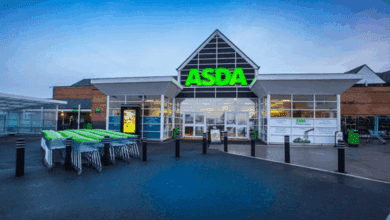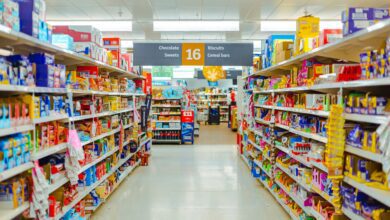Brits spend record £4.8bn on groceries during Christmas
Both Aldi and Lidl continued to outperform the market, with combined market share increasing in the 12 week period to 20.1%, compared to 19% in Q4 2022

Register to get 1 free article
Reveal the article below by registering for our email newsletter.
Want unlimited access? View Plans
Already have an account? Sign in
Sales at the UK supermarkets reached a record breaking £4.8bn during the week ending 23rd December 2023, according to the latest data from NIQ.
This is a +4.3% uplift in sales compared with Christmas in 2022 as volumes also increased by 1.2% as shoppers traded up at this busy time of year.
NIQ data found that UK shoppers took advantage this year of a full week of trading with the opportunity for extra supermarket visits up to Christmas Eve. Over the four weeks to the 30th December and across all channels, shoppers spent £657m1 more on groceries compared with the same period last year.
NIQ said that as UK consumers used the festive period as a time to unwind and gather with family and friends, it impacted sales in several categories. However, this year shoppers focussed on essentials and topped up with affordable treats – economising on discretionary spend such as general merchandise to afford to trade up in food and drink. Affordable treats included crackers and savoury biscuits (+15%), ice cream (+15%), pickles (+15%) and olives and antipasti (+15%). There was also growth in crisps and snacks (+6.3%) and soft drinks (+7.4%)2.
However, sales uplifts for beers, wines and spirits (BWS) were disappointing and it was one area where shoppers bought less. This included Champagne (value sales -5.8%), port (-4.3%), sparkling wine (-2.7%) and spirits (-2.0%).
According to NIQ, over the four week period ending 30th December 2023, online sales (+7.7%) were just ahead of bricks and mortar stores (+5.5%), with 27% of households shopping online in the four week period. This was a similar figure (27.6%) to Christmas 2022, but for context, up on 2017 (18%), which was the last time Christmas Eve was on a Sunday. Overall, online’s share of FMCG spend was 10.6%, a small increase on the 10.4% recorded over the same period last year.
Despite this small uptick in online sales, NIQ’s data shows that the Discounters continued to be the fastest growing channel overall, and both Aldi and Lidl continued to outperform the market, with combined market share increasing in the 12 week period to 20.1%, compared to 19% in Q4 2022.
However, while sales at the Discounters continued to grow, some UK shoppers sought to ‘trade up’ for Christmas. With this in mind, Marks and Spencer was the winner amongst the major supermarkets, with sales up +12.1% in the 12 week period.
NIQ data reports that almost 29% of households shopped at M&S in December, this is up from 27% in the same period last year and equals to 500k new shoppers. This helped drive sales and was a creditable performance against tough comparatives of +12% growth in sales compared with the same period last year.
Additionally, Sainsbury’s (+8.7%) and Tesco (+7.4%) experienced strong trading, with the former increasing market share over the full 12 weeks to 14.3%.
Mike Watkins, NIQ’s UK head of Retailer and Business Insight, said: “With a full week of shopping before Christmas day and then the benefit of another week to spend in the build up to New Years Eve, it was an omnichannel Christmas. Shoppers mixed and matched across the month to take advantage of the convenience of an early online delivery or click and collect and then store visits for last minute shopping for fresh and festive food for family, friends and the new year celebrations.
“However, with shoppers spending around 18% more on their groceries than two years ago, many were mindful of overspending, economised early in the quarter and overall bought less volume in eight out of the 12 weeks.”






